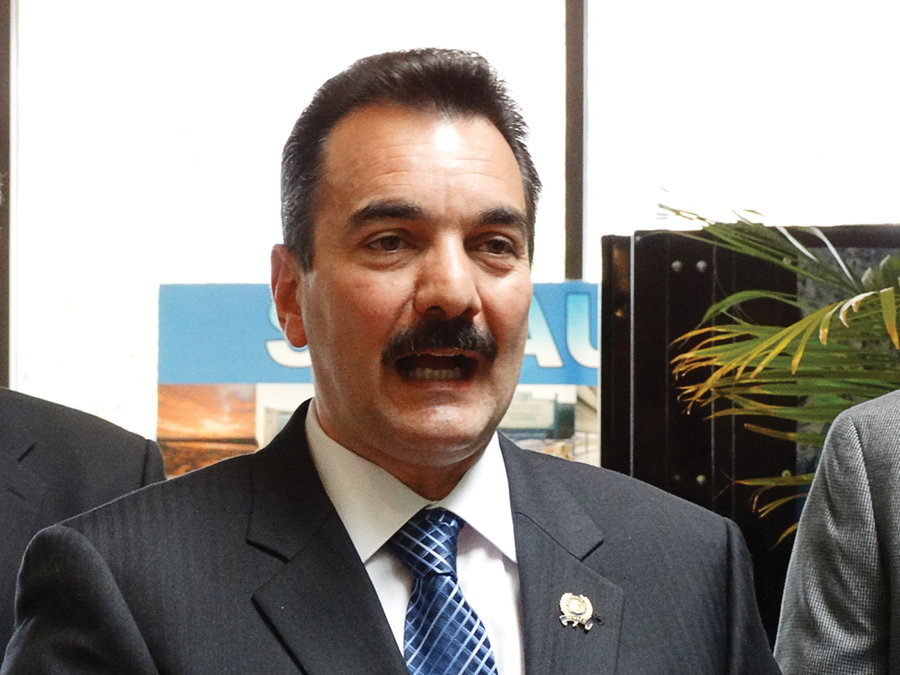Secaucus and North Bergen are among the towns to benefit this year as the state of New Jersey picks up the entire tab for the Meadowlands Intermunicipal Tax Sharing Program for the first time. Established in 1972, the tax sharing plan resulted in seven municipalities within the Meadowlands region paying into a fund, while seven other municipalities withdrew money from the fund.
Secaucus is the largest contributor into the fund. This year the town was responsible for paying $2.9 million into the program, while North Bergen was responsible for paying about $760,000. But the newly-signed state budget for 2014-2015 fully funds the program for one year, resulting in $7.3 million in direct property tax relief to the seven towns charged with paying into the fund.
This is a great relief to local officials, who have been saying for years that the formula is unfair.
Fighting for reform
“The original Meadowlands Commission was created in 1969,” said New Jersey Assembly Speaker Vincent Prieto last week. “Their mission was the orderly development of the Meadowlands.”
Tax sharing was implemented three years later. According to the njmeadowlands.gov website, “Simply stated, if a large section of Community A is zoned for a park and a large section of Community B is zoned for a major office, residential or warehouse project, then Community B should share some of the benefits derived from development.”
“This is probably the most unfair formula ever created in the state of New Jersey.” — Nicholas Sacco
____________
“This is probably the most unfair formula ever created in the state of New Jersey,” said North Bergen Mayor Nicholas Sacco. “For some reason, politicians in Hudson and Bergen Counties permitted it to happen in the late ’60s. They thought it would be a great way to develop the area. Nobody paid anything at the time. It was mostly swamps and things. They never envisioned North Bergen would pay for another town to build a park.”
In a battle that’s been going on for decades now, the seven paying towns have been fighting to have the program amended. Two years ago, proponents managed to get full funding for the program added to the state budget, only to have Gov. Christie exercise his line-item veto power and remove it.
Prieto continued to push strongly for reform, and in 2013 came a breakthrough. “Last year as budget chairman, I negotiated a $6 million payment, for approximately 80 percent of the total,” he said. “This year one of my top five priorities was to get full funding.”
Like last year’s $6 million relief, the $7.3 payment is written into the budget for the current year only. There is no guarantee for future years.
A permanent solution?
“The credit goes to Vinnie Prieto,” said Sacco about why the state assumed payment this year. “We finally got leadership who was willing to go after it. I’m very happy that the governor was fair and left this in the budget. I’ve been through many governors who wouldn’t tackle it.”
“This year I believe our amount was $760,000 that North Bergen owed in tax sharing,” he added. “We’ve been as high a $1.4 million and as low as $600,000. It depends on what’s going on the Meadowlands at the time.”
For Secaucus, “It means a $2.9 million savings this year,” said Gonnelli. “We’re the biggest contributor to tax sharing and we’ve always been. We’ve contributed well over $70 million since inception.”
“That money, the whole $2.9 million, will go to surplus this year because our budget’s already been struck and it’s in the budget,” continued Gonnelli. “That $2.9 million will fully fund capital projects so we don’t have to borrow. It’ll pay down debt. And it’ll be used to keep taxes stable.”
However, a permanent solution to the tax sharing issue still needs to be established.
Because the Meadowlands Commission restricted some regions from commercial development, instead allocating their land for “parks, highways, open space and other non-taxable public uses,” the Commission continues to see the need “balance these inequities.”
“The problem is it’s not fair to them because they were dictated what they could or could not do,” said Prieto. “We have to stay mindful that the receivers have to receive.”
With this in mind, a continuing revenue stream needs to be established for those towns, to replace the existing system requiring other towns to pay the price.
“We have a bill that will create permanent funding,” said Prieto. “I’m in negotiation with the administration to see what’s acceptable to them and hopefully generate revenues to fund the program, and also if there’s excess revenue to potentially use for flood mitigation, all those things. It would be great for the district.”
Art Schwartz may be reached at arts@hudsonreporter.com.
